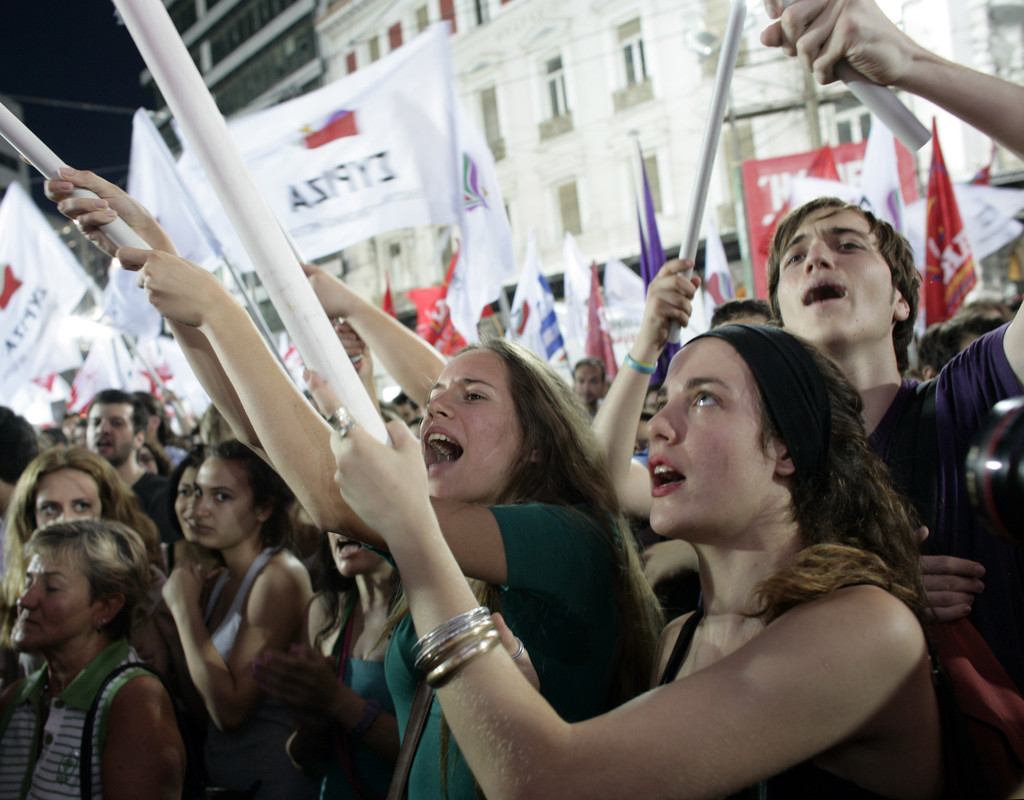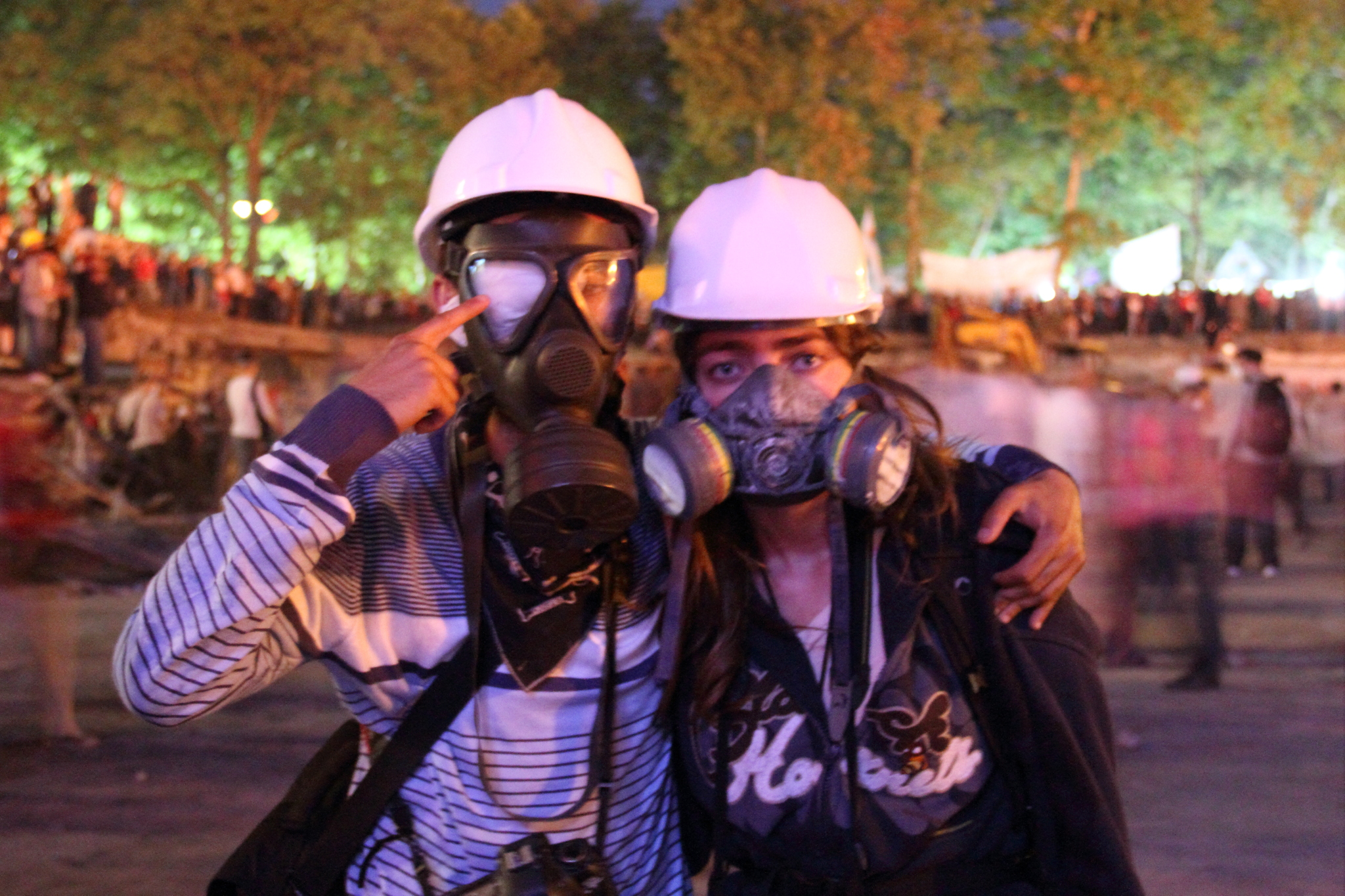There’s a stupid joke doing the rounds on the internet that says a German and a Greek are drinking at the bar. The Greek walks out, leaving the German to pay the bill. A more accurate joke would put a German, a Greek and a banker in the bar. The banker drinks the bar dry, trashes the place, then mugs the German and the Greek. This is the reality of austerity.
Greece is in the throes of its worst economic crisis since the Nazi invasion and like the invasion, the cause of the crisis does not lie with the Greek people. Unemployment is out of control, with one in five workers jobless (including half of all young workers). Medicines urgently needed by cancer patients and people suffering from chronic conditions like epilepsy and asthma unavailable. Power prices have been hiked, leaving hundreds of thousands facing cut-offs. Most telling of all, suicide rates, which used to be among the lowest in Europe, have skyrocketed.
77-year-old Dimitris Christoulas shot himself in Athens’ main square in protest at the unbearable existence he was being forced into it. He left a note that read:
“The Tsolakoglou government has annihilated all traces for my survival, which was based on a very dignified pension that I alone paid for 35 years with no help from the state. And since my advanced age does not allow me a way of dynamically reacting (although if a fellow Greek were to grab a Kalashnikov, I would be right behind him), I see no other solution than this dignified end to my life, so I don’t find myself fishing through garbage cans for my sustenance. I believe that young people with no future, will one day take up arms and hang the traitors of this country at Syntagma square, just like the Italians did to Mussolini in 1945.″
The Tsolakoglou government was the puppet regime put in place during the Nazi occupation. The comparison may seem far-fetched to New Zealanders but this is the scale of the social disaster being unleashed in Greece. That country is the frontline in a worldwide struggle to force working class living standards down to third world levels. Greece is the first casualty in a war to make the world’s working class pay for an economic crisis that was caused by the recklessness of an out-of-control international financial elite. The onslaught they are facing could easily be our fate too. But the Greeks are fighting back, and the whole world needs to learn from them.
Time to learn Greek
If it’s true that the Greeks are to blame for the crisis then we don’t need to worry – we live 17,000km away in a completely different country. If though, the crisis has been caused by forces outside the control of the Greek people, by international finance, then we need to pay attention because New Zealand could be next.
While the NZ economy has completely different strengths and weaknesses to Greece, it is as vulnerable to external shocks. The NZ currency is one of the top 10 most traded in the world, which is fitting, since John Key used to be a currency trader (ie a gambler). NZ is heavily dependent on agricultural exports. Chronic unemployment and low wages have been hidden for a decade by the mining construction boom in Australia. The end of that boom (which is a matter of when, not if) could see mass unemployment in Australia and the return of tens of thousands of NZ-Australians to Godzone’s dole queue. Finally, although all governments since the 1984 Labour government have focused on paying down public debt, private debt has skyrocketed. According to the IMF, NZ’s high household debt makes it unique among highly indebted countries. NZ has been sheltered from the worst of the international financial crisis by high prices for agricultural exports and demand from Australia and China, but the economic fundamentals in NZ are no more secure than they were in Greece.
The roots of the crisis
The Greek crisis has been caused by the international financial crisis. The massive government bailout of banks in 2008 and 2009 has increased government debt internationally. In Europe, the EU elite has responded with calls for cuts to public services and increased tax – the ruling class as ever is trying to make people work longer and harder to pay for the crisis. Asked whether she worried about the economic and social impact of austerity in Greece, IMF boss Christine Lagarde told the Guardian: ”No, I think more of the little kids from a school in a little village in Niger who get teaching two hours a day, sharing one chair for three of them, and who are very keen to get an education. I have them in my mind all the time. Because I think they need even more help than the people in Athens.” If the IMF had a great track record of fixing poverty in Africa, this would ring true. It does not. The real message of the IMF is that Greeks, and working people in other First World countries must get used to third world living standards.
Resistance
The Greeks are on the frontline of a ruling class war on working people, but they are not just taking it. A militant union movement is fighting privatisations and power cut-offs on the ground and has organised massive general strikes against the EU austerity package. Young people are fighting back too in street protests and support for the traitorous PASOK party (the equivalent of the Labour Party here) has collapsed. Instead of PASOK, Greek workers are turning to SYRIZA, a radical left coalition, which has increased its vote from 3% in 2004 to 27% in the last election. SYRIZA is a not a revolutionary party, it is a coalition of reformists, environmentalists and revolutionary socialists, but Greece has the honour of developing the first anti-neoliberal working class electoral opposition in the developed world. This party and the protestors stand in a proud tradition of Greek resistance – back to the 1973 uprising against a military dictatorship and before that to armed struggle first against the Nazi occupation and then the British reimposition of capitalism and the monarchy.
In Aotearoa, the need for resistance may not be as great as in Greece at present, but the events there should serve as a warning. The struggles here against the privatisation of state-owned power companies, against welfare, health and education cuts, and for higher wages are part of an international campaign. The scale of the attacks we have seen here, though bad enough, are nothing compared to what our rulers require. We have breathing space now to build and organise unions, student resistance and political alternatives before the storm. The Mana movement has already shown the potential for people to break from the neo-liberal Labour and Greens but its real test is yet to come. Mana needs to aim not just to win 1% or 2% nor even 5%. Mana needs to learn from Syriza’s experience and prepare itself for much more radical times.
Your guide to Greek myths
Myth 1: This is a Greek crisis not a result of the global financial crisis
FALSE
The Greek economy was more vulnerable to external shock than many – it is a small country (making up only 1.8% of the EU’s GDP) but because it is part of the EU it has no control of its currency. The Greek ruling class is guilty of rampant corruption, massive tax evasion and bad management and the country did borrow too much to put on the Olympic Games in 2004. But none of these caused the crisis, they just made it worse. The German Chancellor Angela Merkel has been the main critic of Greece, calling constantly for more “austerity”. But in 2010, she blamed the banks, not the Greeks, which had taken the government-funded bailouts and immediately started speculating on government debt: “The debt that had to be accumulated, when it was going badly, is now becoming the object of speculation by precisely those institutions that we saved a year-and-a-half ago. That’s very difficult to explain to people in a democracy who should trust us.”
It is much easier to make the Greeks a scapegoat.
Myth 2: The Greeks are lazy
FALSE
The Greeks are not lazy. They work on average 2120 hours a year – 367 hours more than the average Kiwi and 690 more than the average German. Only Koreans work longer hours.
Myth 3: The Greeks retire early
FALSE
The New York Times reported that the average retirement age was 53. Fox News got hold of it and a new reality was created. But the average age is actually 61.7, higher than Germany, France, or Italy. Since the bailout, the retirement age has been raised twice.
Myth 3: The EU taxpayer is subsidising Greece
FALSE
EU taxpayers are not subsidising ordinary Greeks, they are subsidising bank, as often as not German and French banks. As New Statesman reports: “Greece’s total annual deficit is €53bn Euros. Of that, our primary budget deficit is, in fact, under €5bn. The other €48bn is servicing the debt, including that of the two bail-outs, with one third being purely interest.”









